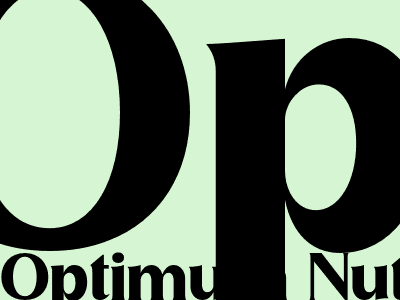Optimum Nutrition: A Comprehensive Guide to Essential Nutrients
Introduction
Optimal nutrition involves consuming the appropriate amount and balance of nutrients to maintain good health and well-being. Macronutrients (carbohydrates, proteins, and fats) provide energy and building blocks for the body, while micronutrients (vitamins and minerals) support various bodily functions. Understanding the role of each nutrient is crucial for creating a balanced and nutritious diet.
Macronutrients
Carbohydrates
Carbohydrates are the primary source of energy for the body. They are classified into simple (sugars) and complex (starches and fiber). Complex carbohydrates provide sustained energy, while simple carbohydrates provide a quick energy boost but can lead to blood sugar spikes.
Proteins
Proteins are essential for building and repairing tissues, producing enzymes, and transporting substances in the body. They are made up of amino acids, some of which the body cannot produce (essential amino acids). Complete protein sources (e.g., meat, eggs) contain all essential amino acids.
Fats
Fats are involved in hormone production, energy storage, and insulation. They are classified as saturated (solid at room temperature), unsaturated (liquid at room temperature), and trans fats (artificially created). Unsaturated fats are healthier than saturated fats, while trans fats should be avoided.
Micronutrients
Vitamins
Vitamins are organic compounds that the body cannot produce on its own. They are classified as water-soluble (e.g., vitamin C) and fat-soluble (e.g., vitamin D). Vitamins support various bodily functions, such as energy production, immunity, and bone health.
Minerals
Minerals are inorganic elements that are essential for bodily functions. They are classified as macrominerals (e.g., calcium, potassium) and trace minerals (e.g., iron, zinc). Minerals support bone health, muscle function, nerve transmission, and fluid balance.
Personalized Nutrition
Optimal nutrition is not a one-size-fits-all approach. Individual needs vary based on factors such as age, gender, activity level, and health conditions. Consulting with a registered dietitian or healthcare professional can help develop a personalized nutrition plan that meets specific needs.
Conclusion
Optimum nutrition is essential for maintaining good health and preventing chronic diseases. By understanding the role of macronutrients and micronutrients, individuals can make informed dietary choices that support their well-being. A balanced and nutritious diet, tailored to individual needs, empowers individuals to live healthier, more fulfilling lives.

Comments